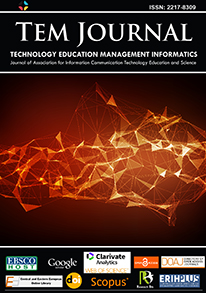Fuzzy Logic-Based Energy Optimization in Water Pumping: Towards Sustainable Development Goals
Fuzzy Logic-Based Energy Optimization in Water Pumping: Towards Sustainable Development Goals
Author(s): Vando Gusti Al Hakim, Nurhening Yuniarti, Haryanto HaryantoSubject(s): Energy and Environmental Studies
Published by: UIKTEN - Association for Information Communication Technology Education and Science
Keywords: Automated control system; fuzzy logic controller; sustainable development goals; energy optimization; simulation
Summary/Abstract: This research addressed the crucial issue of energy inefficiency in water pumping systems by presenting an innovative approach to optimize energy consumption through simulation. A Fuzzy Logic Controller (FLC) was utilized for automated pump control, with the study focusing on enhancing energy efficiency and sustainability. Fuzzy Logic enabled precise regulation of pump operations, adapting to varying water demands while striving to minimize energy wastage. The methodology involved the development and implementation of the FLC model, considering water depth and consumption levels as input parameters. The system was designed to effectively adjust pumping speed based on water usage patterns and tank water levels. The results demonstrated that water quantity significantly affected energy consumption. The fuller the water tank, the lower the energy consumption needed to maintain the desired water level. However, it is important to note that the influence of water consumption also increased the energy consumption of the control system to pump water, highlighting the importance of energy efficiency in water management. The research findings underscored the potential for an efficient and adaptable water pumping mechanism, aligning with sustainable energy practices and contributing to the Sustainable Development Goals (SDGs).
Journal: TEM Journal
- Issue Year: 13/2024
- Issue No: 1
- Page Range: 431-439
- Page Count: 9
- Language: English

